Related Research Articles
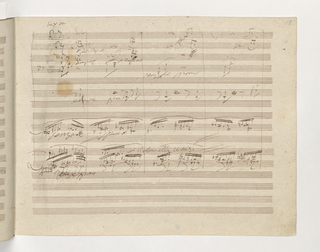
The Symphony No. 9 in D minor, Op. 125, is a choral symphony, the final complete symphony by Ludwig van Beethoven, composed between 1822 and 1824. It was first performed in Vienna on 7 May 1824. The symphony is regarded by many critics and musicologists as Beethoven's greatest work and one of the supreme achievements in the history of music. One of the best-known works in common practice music, it stands as one of the most frequently performed symphonies in the world.

The French horn is a brass instrument made of tubing wrapped into a coil with a flared bell. The double horn in F/B♭ is the horn most often used by players in professional orchestras and bands, although the descant and triple horn have become increasingly popular. A musician who plays a horn is known as a horn player or hornist.
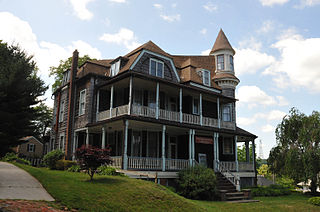
Atlantic Highlands is a borough in Monmouth County, New Jersey, in the Bayshore Region. As of the 2010 United States Census, the borough's population was 4,385, a decline of 320 (−6.8%) from the 4,705 in the 2000 Census, which had in turn increased by 76 (+1.6%) from the 4,629 in the 1990 Census.

The Vienna Philharmonic is an orchestra that was founded in 1842 and is considered to be one of the finest in the world.

The Royal Philharmonic Orchestra (RPO) is a British orchestra based in London.

The Symphony No. 7 by Gustav Mahler was written in 1904–05, with repeated revisions to the scoring. It is sometimes referred to by the title Song of the Night, which Mahler never knew. Although the symphony is often described as being in the key of E minor, its tonal scheme is more complicated. The symphony's first movement moves from B minor (introduction) to E minor, and the work ends with a rondo finale in C major. Thus, as Dika Newlin has pointed out, "in this symphony Mahler returns to the ideal of 'progressive tonality' which he had abandoned in the Sixth". The complexity of the work's tonal scheme was analysed in terms of "interlocking structures" by Graham George.

Claudio Abbado was an Italian conductor who was one of the leading conductors of his generation. He served as music director of the La Scala opera house in Milan, principal conductor of the London Symphony Orchestra, principal guest conductor of the Chicago Symphony Orchestra, music director of the Vienna State Opera, founder and director of Lucerne Festival Orchestra, founder and director of Mahler Chamber Orchestra, founding Artistic Director of Orchestra Mozart, music director of European Union Youth Orchestra, and principal conductor of the Berlin Philharmonic orchestra.

Lorin Varencove Maazel was an American conductor, violinist and composer. He began conducting at the age of eight and by 1953 had decided to pursue a career in music. He had established a reputation in the concert halls of Europe by 1960 but, by comparison, his career in the U.S. progressed far more slowly. He served as music director of The Cleveland Orchestra, Orchestre National de France, Pittsburgh Symphony Orchestra, Bavarian Radio Symphony Orchestra, and the New York Philharmonic, among other posts. Maazel was well-regarded in baton technique and possessed a photographic memory for scores. Described as mercurial and forbidding in rehearsal, he mellowed in old age.

Kindertotenlieder is a song cycle (1904) for voice and orchestra by Gustav Mahler. The words of the songs are poems by Friedrich Rückert.
The Cello Concerto in B minor, Op. 104, B. 191, is the last solo concerto by Antonín Dvořák. It was written in 1894 for his friend, the cellist Hanuš Wihan, but was premiered in London on March 19, 1896, by the English cellist Leo Stern.
Richard Danielpour is an American composer.
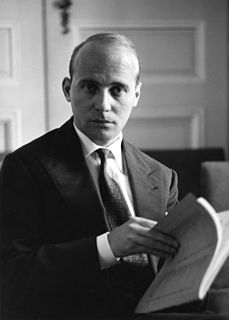
The Bassarids is an opera in one act and an intermezzo, with music by Hans Werner Henze to an English libretto by W. H. Auden and Chester Kallman, after Euripides's The Bacchae.
The Piano Concerto No. 2 in G major, Sz. 95, BB 101 of Béla Bartók is a musical composition for piano and orchestra. The work which was composed between 1930 and 1931, is notorious for being one of the most difficult pieces in the repertoire.

Walter Hilgers is a German tuba player and conductor. He performs worldwide as orchestral musician, soloist, academic music teacher, arranger and conductor.
Philip F. Myers is an American French horn virtuoso and pedagogue. In 2017, he retired from his post as Principal Horn of the New York Philharmonic and remains active as a soloist worldwide. After his retirement, the orchestra did not immediately name any successor as principal horn; in such cases, the position is called "acting principal horn" until a successor is announced.
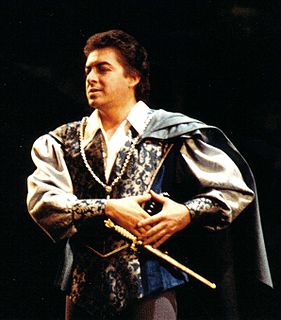
José Francisco Araiza Andrade, is a Mexican operatic tenor and lied singer who has sung as soloist in leading concert halls and in leading tenor operatic roles in the major opera houses of Europe and North America during the course of a lengthy career. Born in Mexico City, he studied singing at the Conservatorio Nacional de Música de México and later in Germany, with Mozartian tenor Richard Holm, and lieder interpretation with Erik Werba. He made his operatic debut in 1970 in Mexico City as First Prisoner in Beethoven's Fidelio. Araiza initially came to international prominence singing in Mozart and Rossini operas, but in the 1980s broadened his repertoire to include Italian and French lyric tenor roles and Wagnerian roles such as Lohengrin and Walther von Stolzing. He was made a Kammersänger of the Vienna State Opera in 1988. Now retired from the opera stage, he teaches singing and serves on the juries of several international singing competitions.
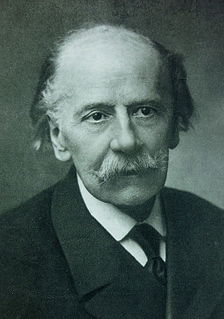
"Méditation" is a symphonic intermezzo from the opera Thaïs by French composer Jules Massenet. The piece is written for solo violin and orchestra. The opera premiered at the Opéra Garnier in Paris on March 16, 1894.
Barry Strauss Carl is an American voice-over actor and musician best known as the bass of the a cappella vocal band Rockapella while the group was house band on the PBS children's geography game show Where in the World Is Carmen Sandiego?. He was a member of Rockapella from 1988 until he left the group in 2002. Carl is known for his signature deep voice, which he used during his years with the band to create an almost instrumental sounding bass.
Notable people with name Engelbert include:
References
- ↑ ENGELBERT BRENNER (1904-1986), Social Security Death Index
- 1 2 3 " Engelbert Brenner, 82, A Philharmonic Soloist", The New York Times , September 19, 1986. Accessed October 16, 2007. "Engelbert Brenner, who played in the New York Philharmonic for 41 years, first as an oboist and later as the orchestra's English horn soloist, died Tuesday at his home in Atlantic Highlands, N.J. He was 82 years old."